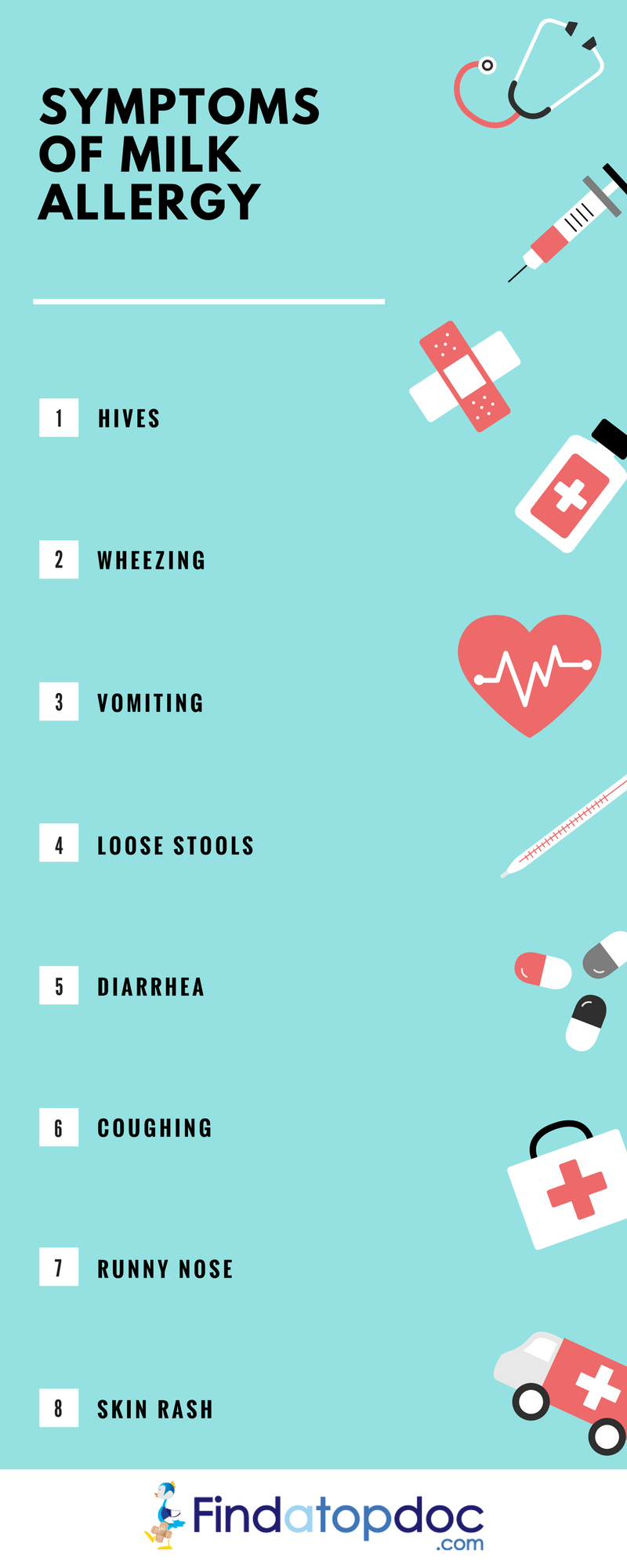
Source
Symptoms
Immediately after consuming milk, signs and symptoms of a milk allergy might include:
- Hives
- Wheezing
- Vomiting
- Loose stools, which may contain blood
- Diarrhea
- Abdominal cramps
- Runny nose
All true food allergies are caused by an immune system malfunction. Your immune system identifies certain milk proteins as harmful, triggering the production of immunoglobulin E (IgE) antibodies to neutralize the protein (allergen).
There are two main proteins in cow's milk that can cause an allergic reaction:
- Casein, found in the solid part (curd) of milk that curdles
- Whey, found in the liquid part of milk that remains after milk curdles